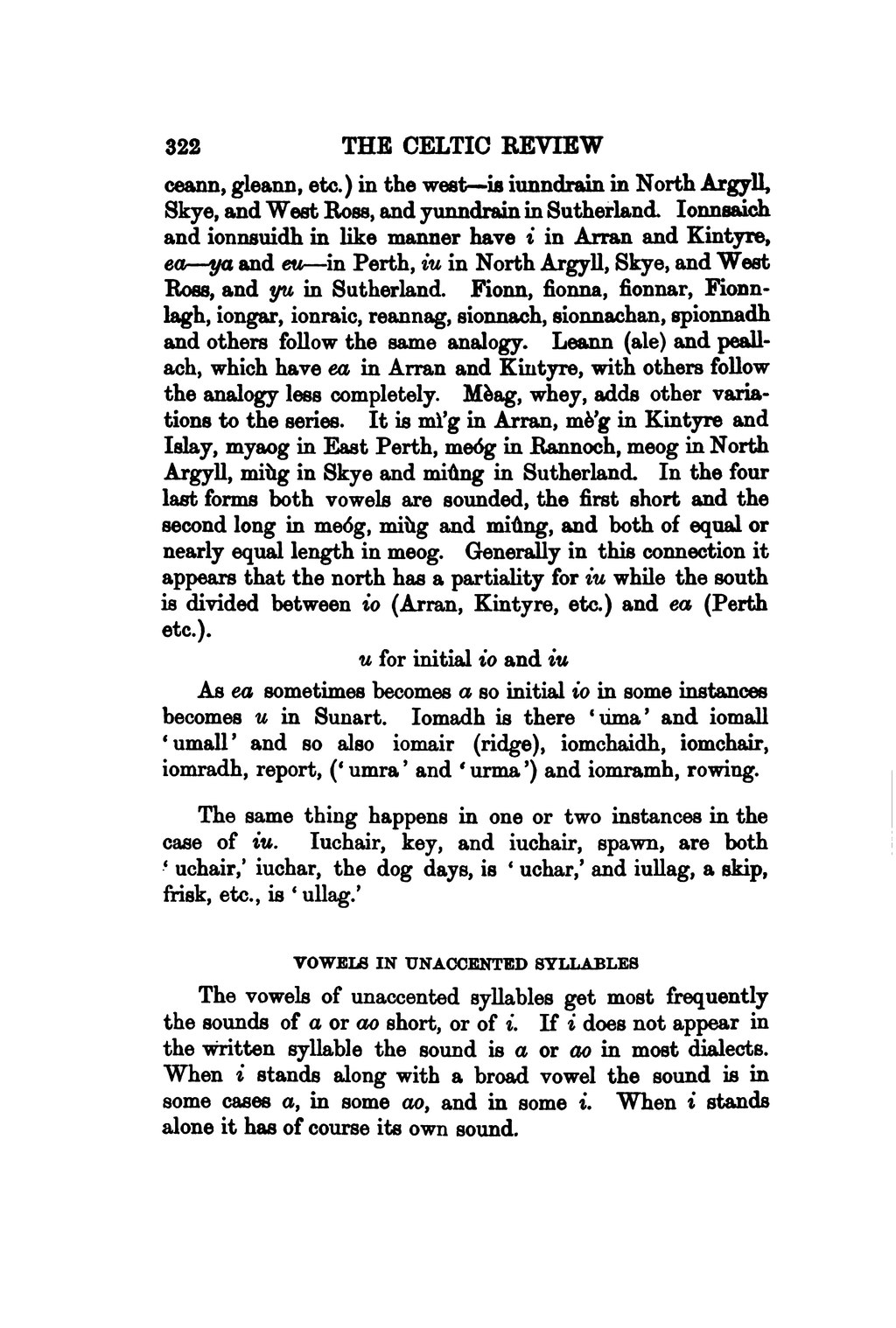ceann, gleann, etc.) in the west—is iunndrain in North Argyll, Skye, and West Ross, and yunndrain in Sutherland. Ionnsaich and ionnsuidh in like manner have i in Arran and Kintyre, ea—ya and eu—in Perth, iu in North Argyll, Skye, and West Ross, and yu in Sutherland. Fionn, fionna, fionnar, Fionnlagh, iongar, ionraic, reannag, sionnach, sionnachan, spionnadh and others follow the same analogy. Leann (ale) and peallach, which have ea in Arran and Kintyre, with others follow the analogy less completely. Mèag, whey, adds other variations to the series. It is mì’g in Arran, mè’g in Kintyre and Islay, myaog in East Perth, meóg in Rannoch, meog in North Argyll, miùg in Skye and miûng in Sutherland. In the four last forms both vowels are sounded, the first short and the second long in meóg, miùg and miûng, and both of equal or nearly equal length in meog. Generally in this connection it appears that the north has a partiality for iu while the south is divided between io (Arran, Kintyre, etc.) and ea (Perth etc.).
u for initial io and iu
As ea sometimes becomes a so initial io in some instances becomes u in Sunart. Iomadh is there ‘uma’ and iomall ‘umall’ and so also iomair (ridge), iomchaidh, iomchair, iomradh, report, (‘umra’ and ‘urma’) and iomramh, rowing.
The same thing happens in one or two instances in the case of iu. Iuchair, key, and iuchair, spawn, are both ‘uchair,’ iuchar, the dog days, is ‘uchar,’ and iullag, a skip, frisk, etc., is ‘ullag.’
vowels in unaccented syllables
The vowels of unaccented syllables get most frequently the sounds of a or ao short, or of i. If i does not appear in the written syllable the sound is a or ao in most dialects. When i stands along with a broad vowel the sound is in some cases a, in some ao, and in some i. When i stands alone it has of course its own sound.
